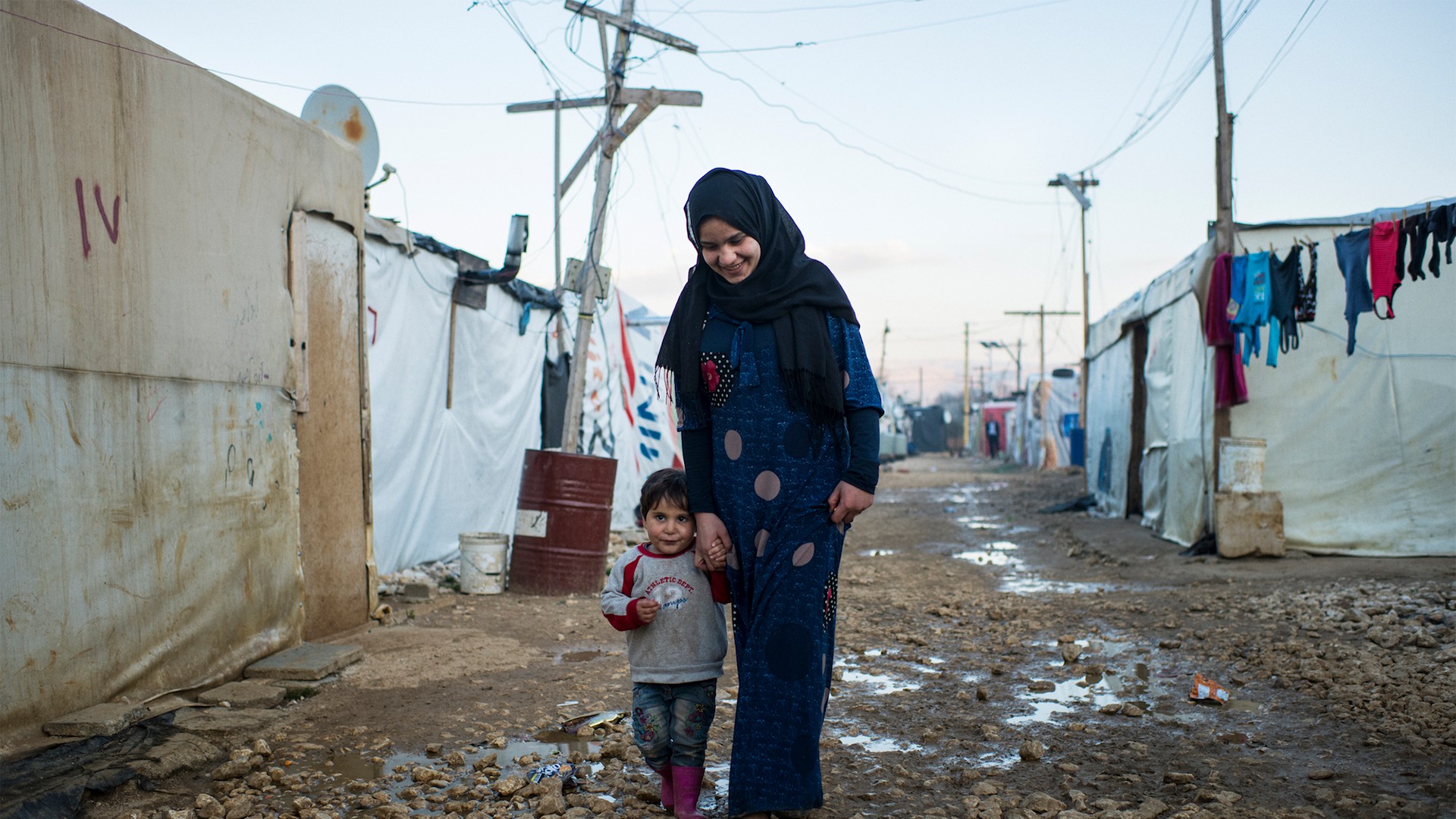WATCH: VICE Meets the Syrian Teens Growing Up in Lebanon's Limbo

But across the border in Lebanon, the days move more slowly. Many of the war's youngest refugees have weathered the conflict here, mere hours from hometowns they cannot return to; in a sort of limbo. Keeping busy is a survival skill in the Beqaa. The last thing anyone needs is more time to think about what they’ve gone through, or what might come tomorrow. Purpose can distract from the creeping anxiety about food, supplies, and money. At least sometimes."Sometimes… Sometimes I feel the pressure," says Ibrahim, a 20-year-old from South Aleppo. One of six kids, he’s the oldest sibling living in the Beqaa. His two older sisters, both married, live back in Syria. “I'm the only one here providing for my family," he says.
An ITS in the Beqaa Valley. Image by Andrew Quilty
Image by Andrew Quilty
Ghoussoun (left) and her sister. Image by Andrew Quilty
Ghoussoun at a vocational cooking course she's been taking at World Vision's Beqaa office, hoping to find work in a local restaurant. Image by Andrew Quilty
Hamad, 18, building a shelter in Beqaa. Image by Andrew Quilty
Hamad, 18, building a shelter in Beqaa.Image by Andrew Quilty
A mother watches her children inside their tent in the Beqaa. Image by Andrew Quilty
Passage to Europe with a smuggler is now almost attainable only by the rich. Plus, the Mediterranean's death toll during the 2015 migrant crisis won't be soon forgotten. "It would be dangerous to travel by boat and very expensive," Ibrahim explains. "For one person it would be around US$7,000, and they would have to go by sea. There is no guarantee they will live. They have to risk their lives."But staying comes with its own risks. Tension has been rising between Syrians and Lebanese locals for years, as the country strains under the weight of having the highest per capita concentration of refugees in the world. There are more than a million Syrians in Lebanon, plus 500,000 Palestinian refugees who’ve been sheltering from their own conflict for decades—this in a country that had a population of just four million before the war."I don't want to fight. I don't want to walk towards death with my own two feet."
A Syrian refugee, 18, holds his baby sibling. Image by Andrew Quilty
A Syrian man tends to his pigeons in the Beqaa. Image by Andrew Quilty
Image by Andrew Quilty
Some boys smoke hookah in the Beqaa. Image by Andrew Quilty
Aahed, 19, in her tent. Image by Andrew Quilty
Douaa and Aahed
Douaa and her grandfather play with the family's cat. Image by Andrew Quilty
Aahed's mother Sourayya, Douaa, and Aahed. Image by Andrew Quilty
Image by Andrew Quilty
Aahed's brother and the family cat. Image by Andrew Quilty
Image by Andrew Quilty
Image by Andrew Quilty
Image by Andrew Quilty
Image by Andrew Quilty
Image by Andrew Quilty
Image by Andrew Quilty
Image by Andrew Quilty
Image by Andrew Quilty
